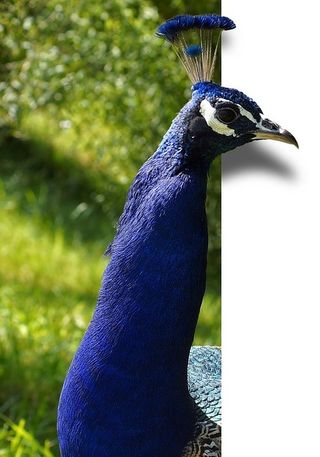Narcissism
Can Narcissism Be Good For You?
Narcissistic personality disorder is commoner in executives than in criminals.
Posted June 30, 2014

[Article revised on 3 May 2020.]
It's important not to confuse self-confidence with narcissism. The true narcissist harbours a stong sense of born entitlement, self-aggrandizing fantasies, and a craving for admiration. In severe cases, he may be envious, lacking in empathy, and ready to exploit others in the pursuit of his impressive goals. Although he can be charismatic and charming, he can all too often seem self-absorbed, controlling, selfish, and insensitive. If he feels slighted or ridiculed, he might be provoked into a fit of destructive rage and revenge seeking. Such a paroxysmal reaction is sometimes called ‘narcissistic rage’, and can have disastrous consequences for those at whom it is directed.
Two different kinds of narcissist
In The Picture of Dorian Gray, both the characters of Lord Henry Wooton and Dorian Gray are strongly narcissistic. Lord Henry’s narcissism is insightful and often quite charming, and no doubt similar to that of his creator and alter ego, Oscar Wilde. For example, in Chapter 1, Lord Henry says,
I make a great difference between people. I choose my friends for their good looks, my acquaintances for their good characters, and my enemies for their good intellects. A man cannot be too careful in the choice of his enemies. I have not got one who is a fool. They are all men of some intellectual power, and consequently they all appreciate me.
On the other hand, Dorian Gray’s narcissism is cold and destructive, leading, among others, to the suicide of actress Sibyl Vane. In Chapter 7, Sibyl tells Dorian that he brought her to ‘something [higher] of which all art is but a reflection’ and made her understand the nature of true love. Instead of feeling touched or flattered, Dorian angrily replies that Sibyl’s poor acting on that particular evening has killed off any love that he might in turn have had for her. Such are his cold-blooded terms:
‘Yes,’ he cried, ‘you have killed my love. You used to stir my imagination. Now you don’t even stir my curiosity. You simply produce no effect. I loved you because you were marvellous, because you had genius and intellect, because you realized the dreams of great poets and gave shape and substance to the shadows of art. You have thrown it all away. You are shallow and stupid. My God! How mad I was to love you! What a fool I have been! You are nothing to me now. I will never see you again. I will never think of you. I will never mention your name. You don’t know what you were to me, once. Why, once... Oh, I can’t bear to think of it! I wish I had never laid eyes upon you! You have spoiled the romance of my life...’
Narcissism at the top
In a study dating from 2005, Board and Fritzon at the University of Surrey found that narcissistic personality disorder (as well as histrionic personality disorder and obsessive-compulsive personality disorder) are more common in high-level executives than in mentally disordered criminal offenders at the high security Broadmoor Hospital.
This suggests that people commonly benefit from strongly ingrained and potentially maladaptive personality traits. For example, people with narcissistic personality disorder may be highly ambitious, confident, and self-focused, and able to exploit people and situations to maximum advantage. People with histrionic personality disorder may be adept at charming and manipulating others, and therefore at building and exercising business relationships.
In their study, Board and Fritzon described the executives with a personality disorder as ‘successful psychopaths’ and the criminal offenders as ‘unsuccessful psychopaths’, and it may be that highly successful people and disturbed psychopaths have more in common than first meets the eye. As the psychologist and philosopher William James put it more than a hundred years ago,
When a superior intellect and a psychopathic temperament coalesce ... in the same individual, we have the best possible condition for the kind of effective genius that gets into the biographical dictionaries.
Neel Burton is author of The Meaning of Madness and other books.


